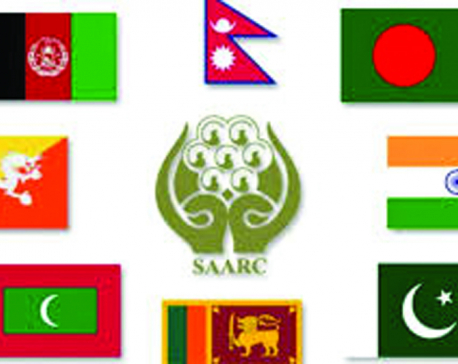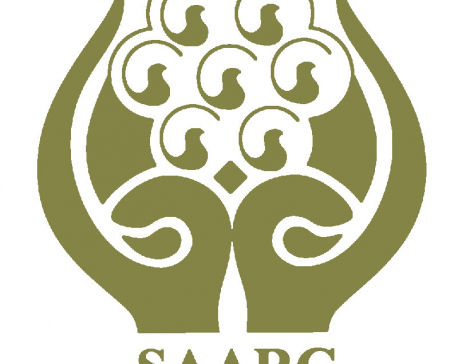
OR
Regional policymakers and experts advocate for safeguarding children in South Asia from compounding shocks and stresses
Published On: February 24, 2023 12:58 PM NPT By: Republica | @RepublicaNepal
KATHMANDU, Feb 24: Policymakers, experts, academics, and think tanks from South Asia came together at the South Asian Association for Regional Cooperation (SAARC) Secretariat in Kathmandu on Friday to discuss protecting children and families from the extensive precarity brought on by climate disasters, economic shocks and the lingering effects of the COVID-19 pandemic.
The event was organized by UNICEF South Asia in partnership with the SAARC. Bharat Raj Paudyal, Foreign Secretary of Nepal, Martin Raiser, Vice President for South Asia at the World Bank and Dr. Pem Kandel from the International Centre for Integrated Mountain Development (ICIMOD) attended the event as special guests.
South Asia is home to 628 million children – the highest child population in the world – and is also an epicenter for climate disasters. In 2022 alone, climate-induced floods left over 15 million boys and girls in South Asia in need of assistance.
Meanwhile, the economic downturn sparked by the COVID-19 pandemic and fuelled by rising inflation, conflicts and mounting country debts, has had a disproportionate impact on children and families.
“The evidence shows us that the most vulnerable children and families in South Asia have been hit the hardest by the effects of COVID-19, climate change, rising food prices and inflation,” said Esala Ruwan Weerakoon, SAARC Secretary General. “The decisions and investments we make today will determine the resilience of our region in tackling future shocks.”
Similarly, Foreign Secretary Poudyal said, “It is equally true that children suffer silently from the ramification of global scale challenges. Such challenges can take many forms, including economic disarray, social upheaval and political tensions which restrict access to resources, healthcare and education that are essential for children's development. Ultimately, they perpetuate cycles of poverty and inequality for future generations.”
You May Like This

Pakistan seeks Nepal's constructive role in SAARC
KATHMANDU, Feb 25: Pakistani Foreign Minister Shah Mahmood Qureshi held a telephonic conversation with his Nepali counterpart Pradeep Kumar Gyawali,... Read More...

SAARC Secy Gen inaugurates conference facility
KATHMANDU, Dec 6: SAARC Secretary General Amjad Hussain B Sial on Tuesday inaugurated the recently renovated conference facility equipped with... Read More...

Nepal for SAARC summit as scheduled
KATHMANDU, Sept 28: Nepal, the current chair of the South Asian Association for Regional Cooperation (SAARC), has said that it is... Read More...










Just In
- NRB introduces cautiously flexible measures to address ongoing slowdown in various economic sectors
- Forced Covid-19 cremations: is it too late for redemption?
- NRB to provide collateral-free loans to foreign employment seekers
- NEB to publish Grade 12 results next week
- Body handover begins; Relatives remain dissatisfied with insurance, compensation amount
- NC defers its plan to join Koshi govt
- NRB to review microfinance loan interest rate
- 134 dead in floods and landslides since onset of monsoon this year








Leave A Comment